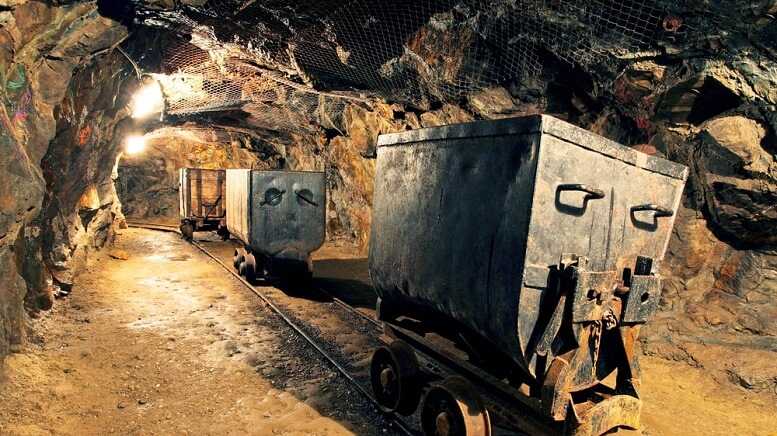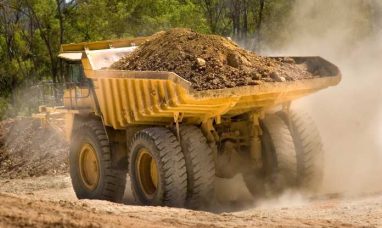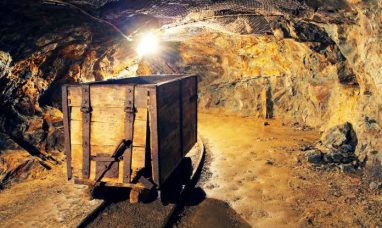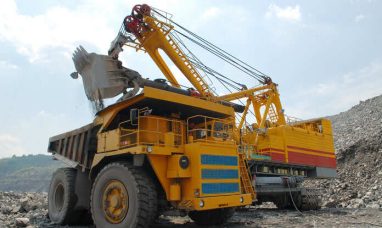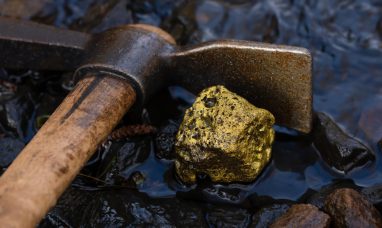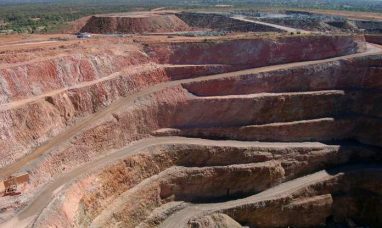306,000 oz Au Average Annual Full Year Production
C$1.2B After-Tax NPV and 34% After-Tax IRR (Unlevered) at US$1,600/oz Au
C$257M Average Annual After-Tax Free Cash Flow per Full Year of Production
TORONTO, Nov. 28, 2022 (GLOBE NEWSWIRE) — Osisko Mining Inc. (OSK:TSX. “Osisko” or the “Corporation”) is pleased to provide the results of its independent feasibility study (“FS”) prepared in accordance with National Instrument 43-101 –
Standards of Disclosure for Mineral Projects
(“NI 43-10”) on its 100% owned Windfall gold project (“Windfall”, or the “project”) located in the Abitibi greenstone belt, Urban Township, Eeyou Istchee James Bay, Québec. Windfall is situated on the traditional lands of the Cree First Nation of Waswanipi (“CFNW”).
The FS provides a robust base case assessment for developing Windfall as an underground dual ramp-access mine with a central processing mill on site, and reflects drill results available as of June 7, 2022, as included in the Windfall MRE (2022) (as defined herein). Osisko has begun detailed engineering work on the project, and is progressing towards delivering the Environmental Impact Assessment (the “EIA”) study in Q1 2023 and initiating the mine permitting process.
Highlights
(
1-6
)
-
Full year average production of 306,000 oz Au, 8.1 g/t Au average grade fully diluted
-
Peak production of 374,000 oz Au in year two
-
Average after-tax free cash flow of C$257 Million per full year of production (C$2.3 Billion cumulative free cash flow)
-
Capex of US$607 Million (includes US$38 Million as contingency in direct and indirect costs), NPV/Capex ratio of 1.5
-
All-in sustaining cost (“AISC”) of US$758/oz; Cash cost of US$587/oz
-
3,400 tonne per day milling operation
-
Average recovery of 93%; all in mining cost of US$136/tonne
-
C$6.2 Billion of gross revenue
-
Creation of over 1,000 direct and indirect jobs during construction and over 670 direct permanent jobs during operation
|
Notes : |
|||
| (1 | ) | Cautionary Statement: Readers are advised that the FS summarized in this news release is intended to provide only an initial, high-level overview of the project potential and design options. The FS mine plan and economic model include numerous assumptions. There is no guarantee the project economics described herein will be achieved. | |
| (2 | ) | Full years of production refer to Years 1 to 9. | |
| (3 | ) | AISC is presented within the meaning defined by the World Gold Council (“WGC”), less corporate G&A. | |
| (4 | ) |
The FS relating to the disclosure in this news release will be filed on SEDAR ( www.sedar.com ) under Osisko’s issuer profile within 45-days. |
|
| (5 | ) |
Total cash costs and cash costs per ounce, and AISC and AISC per ounce are non-IFRS financial measures. See “Non-IFRS Financial Measures” for a discussion of non-IFRS financial measures. |
|
| (6 | ) | References to C$ and US$ are to Canadian and United States dollars, respectively. | |
Osisko Chief Executive Officer John Burzynski commented: “We are very pleased to deliver the Windfall feasibility study, outlining the supporting economics indicating Windfall can become a significant and highly profitable new gold mine in Québec. Using the grades defined in our most recent mineral resource estimate (being the Windfall MRE (2022) reflecting drill results available as of June 7, 2022), the numbers are robust, with a C$1.2 Billion after-tax net present value (“NPV”) and 34% after-tax unlevered internal rate of return (“IRR”), using US$1,600 oz gold. As we move to complete the EIA study in Q1 2023 and begin the permitting process, we expect to advance our underground exploration and continue to grow the scale and quality of the deposit. The Corporation anticipates the announcement of project financing plans in H1 2023 and a production decision in early 2024.
Osisko would like to thank our employees and contractors for their tremendous work over the past seven years to arrive at this important point in our project, and express our gratitude to our hosts the Cree First Nation of Waswanipi, as well as the community of Lebel-sur-Quévillon, and the many Québec government agencies for their continuous support.”
Feasibility Study Details
The FS was integrated by BBA Inc. under the supervision of Ms. Kim-Quyên Nguyên, P. Eng., MBA, Project Director for Osisko Mining, and the Osisko technical team. This independent FS was prepared in collaboration with the following firms: A2GC − Andrieux & Associates Geomechanics Consulting L.P. (Montréal, QC), BBA Inc. (Montréal, QC), GCM Consultants (Montréal, QC), Entech Mining Ltd. (Toronto, ON), PLR Resources Inc. (Montréal, QC) and WSP Canada Inc. (Montréal, QC). These firms provided mineral resource estimates, reserve estimates, design parameters and cost estimates for mine operations, process facilities, major equipment selection, waste and tailings storage, reclamation, permitting, and operating and capital expenditures. Contributors and their area of responsibility are summarized in Table 5.
Project economics were evaluated based on a forecast date to receive the construction permit in Q1 2024. Unless stated otherwise, all costs are in Canadian dollars.
Table 1: FS Summary
|
Total mineralized material mined (t) |
12,183,405 |
| Average mill feed diluted gold grade (Au g/t) | 8.06 |
| Total gold contained (oz) | 3,158,713 |
| Total gold produced (oz) | 2,942 339 |
| Total gold payable (oz) | 2,940,868 |
| Gold payable recovery (%) | 93.1% |
| Average annual gold produced (Au oz per year) | 294,234 |
| Average mill feed diluted silver grade (Ag g/t) | 4.18 |
| Silver payable recovery (%) | 83.3% |
| Total silver payable (oz) | 1,366,537 |
| Total initial CAPEX (C$Million) | 788.6 |
| Sustaining capital (C$Million) | 587.6 |
|
Operating cost (per tonne milled) |
|
| Mining (C$) | 82.21 |
| Processing (C$) | 40.76 |
| Waste & water management (C$) | 6.30 |
| General & administration (C$) | 32.81 |
| Electrical transmission line lease (C$) | 14.59 |
| Total unit operating costs (per tonne milled) (C$) | 176.67 |
Table 2: Summary Economics at US$1,600 Au
| LOM net smelter return (“NSR”) revenue (C$Million) | 6,134 |
| Total LOM pre-tax cash flow (C$Million) | 2,432 |
| Average annual pre-tax cash flow (C$Million) | 243 |
| LOM income taxes (C$Million) | 721.8 |
| Total LOM after-tax free cash (C$Million) | 1,710.2 |
| Average annual after-tax free cash flow (C$Million) | 171 |
| Discount rate (%) | 5.0% |
| Pre-tax NPV (C$Million) | 1,685 |
| Pre-tax IRR | 40.1% |
| Pre-tax payback after start of production (years) | 2.0 |
| After-tax NPV (C$Million) | 1,168.4 |
| After-tax IRR | 33.8% |
| After-tax payback after start of production (years) | 2.0 |
Table 3: All-In Sustaining Cost
|
Adjusted operating costs |
|
|
Mining cost ( 1) |
993.0 |
|
Processing cost ( 1) |
492.3 |
|
Tailing & water management cost ( 1) |
76.1 |
|
General & administrative cost ( 1) |
396.3 |
|
Electrical transmission line lease cost ( 1) |
176.2 |
|
Royalties ( 1) |
127.4 |
|
Transport and refining costs ( 1) |
20.0 |
|
Ag by-product credit ( 1) |
(37.3) |
|
Adjusted operating costs ( 1) |
2,244.1 |
|
Sustaining costs |
|
|
LOM sustaining costs ( 1) |
587.6 |
|
Salvage value credit ( 1) |
(18.7) |
|
Reclamation and closure costs ( 1) |
83.3 |
|
Total ( 1) |
2,896.4 |
|
All-in sustaining costs (US$/oz) |
757.6 |
|
All-in sustaining costs (C$/oz) |
984.9 |
|
Notes : |
(1) All-in sustaining costs are presented as defines by the WGC less corporate G&A (2) Millions of Canadian dollars |
Table 4: Gold Price
(
1)
and Exchange Rate
(2)
Sensitivity
|
Gold Price (US$/oz) |
||||||||
|
1,300 |
1,400 |
1,500 |
1,600 (1) |
1,700 |
1,800 |
1,900 |
2,000 |
|
| Pre-tax NPV 5% (C$Million) | 836.2 | 988.6 | 1,350.7 |
1,685.1 |
1,968.0 | 2,217.7 | 2,444.6 | 2,654.3 |
| After-tax NPV 5% (C$Million) | 640.4 | 739.2 | 964.6 |
1,168.4 |
1,338.7 | 1,485.3 | 1,618.1 | 1,740.5 |
| Pre-tax IRR | 24.7% | 27.6% | 34.3% |
40.1 % |
44.8% | 48.8% | 52.4% | 55.6% |
| After-tax IRR | 21.5% | 24.0% | 29.3% |
33.8 % |
37.5% | 40.6% | 43.3% | 45.8% |
| Pre-tax payback after start of production (years) | 2.88 | 2.64 | 2.21 |
1.95 |
1.79 | 1.66 | 1.56 | 1.49 |
| After-tax payback after start of production (years) | 3.03 | 2.78 | 2.32 |
2.03 |
1.86 | 1.74 | 1.64 | 1.57 |
|
Foreign Exchange Sensitivity |
|||||||||||||
|
0.90 |
0.85 |
0.80 |
0.77 (2) |
0.70 |
0.65 |
0.60 |
0.55 |
||||||
| Pre-tax NPV 5% (C$M) | 1,025.4 | 1,952.2 | 1,268.0 |
1,685.1 |
2,134.1 | 2,034.3 | 2,549.9 | 2,478.8 | |||||
| After-tax NPV 5% (C$M) | 762.5 | 1,329.2 | 913.4 |
1,168.4 |
1,436.4 | 1,377.9 | 1,679.4 | 1,638.1 | |||||
| Pre-tax IRR | 28.3% | 44.5% | 32.8% |
40.1 % |
47.5% | 45.9% | 54.0% | 52.9% | |||||
| After-tax IRR | 24.5% | 37.3% | 28.1% |
33.8 % |
39.6% | 38.3% | 44.6% | 43.8% | |||||
|
Notes : |
|||||||||||||
| (1 | ) | The base case uses a gold price of US$1,600/oz. | |||||||||||
| (2 | ) | The base case uses an exchange rate of US$1.00 = C$1.30 (or US$0.77 = C$1.00). | |||||||||||
Table 5: Consulting Firms and Area of Responsibility
|
Consulting Firm |
Area of Responsibility |
| A2GC − Andrieux & Associates Geomechanics Consulting L.P. |
|
| BBA Inc. |
|
| Entech Mining Ltd. |
|
| PLR Resources Inc. |
|
| WSP Canada Inc. |
|
| GCM Consultant |
|
Mineral Resource Estimate
The FS mineral reserve estimate is based on the Windfall MRE (2022), which is summarized below in Table 6. This mineral resource estimate uses a base cut-off of 3.5 g/t Au in the measured mineral resource, indicated mineral resource and inferred mineral resource categories.
Table 6: Windfall Deposit Mineral Resource Estimate
(1)
|
Area |
Measured |
Indicated |
Inferred |
||||||||||||
|
Tonnes ( 1) (000) |
Grade Au (g/t) |
Grade Ag (g/t) |
Ounces Au ( 1) (000) |
Ounces Ag ( 1) (000) |
Tonnes ( 1) (000) |
Grade Au (g/t) |
Grade Ag (g/t) |
Ounces Au ( 1) (000) |
Ounces Ag ( 1) (000) |
Tonnes ( 1) (000) |
Grade Au (g/t) |
Grade Ag (g/t) |
Ounces Au ( 1) (000) |
Ounces Ag ( 1) (000) |
|
|
Lynx ( 2) |
671 | 11.4 | 7.2 | 247 | 154 | 6,638 | 13.2 | 6.7 | 2,814 | 1,426 | 4,774 | 10.8 | 6.9 | 1,663 | 1,063 |
| Underdog | – | – | – | – | – | 928 | 9.5 | 3.4 | 284 | 101 | 4,072 | 7.7 | 3.0 | 1 011 | 397 |
|
Main ( 3) |
109 | 9.4 | 4.4 | 33 | 16 | 2,685 | 7.6 | 4.8 | 655 | 412 | 2,799 | 5.8 | 3.3 | 518 | 296 |
| Triple 8 | – | – | – | – | – | – | – | – | – | – | 642 | 7.0 | 6.6 | 145 | 136 |
| Total in situ | 780 | 11.1 | 6.8 | 279 | 170 | 10,250 | 11.4 | 5.9 | 3,754 | 1,939 | 12,287 | 8.4 | 4.8 | 3,337 | 1,892 |
| Stockpiles | 32 | 16.9 | 4.3 | 17 | 4 | – | – | – | – | – | – | – | – | – | – |
|
Total |
811 |
11.4 |
6.7 |
297 |
174 |
10,250 |
11.4 |
5.9 |
3,754 |
1,939 |
12,287 |
8.4 |
4.8 |
3,337 |
1,892 |
|
Notes : |
||||
| (1 | ) | Values are rounded to nearest thousand which may result in apparent discrepancies. | ||
| (2 | ) | Lynx area includes: Lynx Main, Lynx HW, Lynx SW, Lynx 4, and Triple Lynx. | ||
| (3 | ) | Main area includes: Zone 27, Caribou 1, Caribou 2, Caribou Extension, Bobcat, Mallard, Windfall North, and F-Zones | ||
Mineral Reserve Estimate
The mineral reserve estimate on which the FS is based was completed by Patrick Langlais (P.Eng.) of Entech Mining Ltd. (summarized below in Table 7) and consists of probable reserves using a 3.5 g/t operating, 2.5 g/t incremental, and 1.7 g/t development cut-off grade.
Table 7: Windfall Mineral Reserve
|
Tonnes (000s) |
Grade (g/t) |
Contained Oz Au (000s) |
||||
|
Probable mineral reserves ( 1)(2)(3)(4)(5) |
12,183 | 8.06 | 3,159 | |||
|
Notes : |
||||||
| (1 | ) | Patrick Langlais, P.Eng. (Entech Mining Ltd.) is the “qualified person” (within the meaning of NI 43-101) for the mineral reserve estimate and is considered to be “independent” of Osisko under Section 1.5 of NI 43-101. | ||||
| (2 | ) | Mineral reserve estimate has an effective date of September 1, 2022 and is based on the mineral resource block model dated June 7, 2022. | ||||
| (3 | ) | Estimated at US$1,600/oz Au using an exchange rate of US$1.00 = C$1.30 | ||||
| (4 | ) | Mineral reserve tonnage and mined metal have been rounded to reflect the accuracy of the estimate and numbers may not add due to rounding. | ||||
| (5 | ) | Mineral reserves presented include both internal and external dilution along with mining recovery. The external dilution is estimated to be 20%. Assumed mining recoveries are 98% for development and an average of 91% for production. | ||||
Capital and Operating Costs Estimate
The overall capital cost estimate developed in the FS generally meets the AACE Class3 requirements and has an accuracy range of between -10% and +15%. Contingency was calculated based on Monte Carlo simulation, using a P
50
value.
Table 8: Capital Cost Summary
(
1)(2)
|
Capital Costs (Millions of Canadian dollars) |
Pre-Production |
Sustaining |
Total |
||
| Mining | 80.2 | 556.7 | 636.9 | ||
| Mineral processing and filtration plant | 273.8 | 0.0 | 273.8 | ||
| Mine surface facilities | 0.0 | 3.7 | 3.7 | ||
| Electrical and communication | 14.7 | 0.0 | 14.7 | ||
| Plant surface facilities | 63.9 | 0.0 | 63.9 | ||
| Tailings and water management | 69.5 | 26.0 | 95.5 | ||
| Indirect and owner’s costs | 237.0 | 1.3 | 238.3 | ||
| Site reclamation and closure restoration | 0.0 | 83.3 | 83.3 | ||
| Salvage value | 0.0 | (18.7 | ) | (18.7 | ) |
|
Subtotal |
739.1 | 652.3 |
1,391.3 |
||
|
Contingency (P 50 ) |
49.5 | 0.0 | 49.5 | ||
|
Total capital costs ( 2) |
788.6 | 652.3 |
1,440.8 |
||
| Production revenue NSR | 6,134.3 | 6,134.3 | |||
|
Notes : |
|||
| (1 | ) | Totals may differ due to rounding. | |
| (2 | ) | Total capital costs exclude: (i) sunk costs for pre-ordered grinding mills (C$5.6 million) and EIA (C$1.1 million); (ii) long-lead items, including engineering studies (C$34.6 million), logistics and warehousing (C$2.1 million), mechanical and electrical packages (C$57.0 million), camp (C$32.2 million), material opportunity purchase (C$8 million), mining fixed equipment (C$2.9 million) and contingency (C$3.0 million). | |
Table 9: Operating Cost Summary
|
Operating costs (Millions of Canadian dollars) |
|
| Mining | 993.0 |
| Processing | 492.3 |
| Waste and water management | 76.1 |
| General & administration | 396.3 |
| Electrical transmission line lease | 176.2 |
|
Total operating costs |
2,134.0 |
Mining
The mineral resources used in the mine plan are contained in three different zones over a strike length of 2,300 metres and span from surface to a depth of approximately 1,100 metres. Each zone is characterized by multiple tabular panels, which mainly trend ENE and dip vertically to sub-vertically.
The planned underground mine will have a targeted production rate of 3,400 tonnes per day (“tpd”). The selected mining method is longitudinal longhole open stoping. Stope dimensions are 20 metres in height, median of 25 metres in strike length, and have a median thickness of 4.4 metres with a minimum thickness of 3.0 metres. Mineralized material will be extracted using a fleet of 14 and 18 tonne load-haul-dumps (“LHDs”) and 54 tonne haul trucks using a ramp to surface.
Processing
A total of 3,400 tpd run-of-mine will be processed at the Windfall site. The process plant consists of primary crushing, followed by a grinding circuit consisting of a SAG mill (24’ x 11’, in closed circuit with a pebble crusher) and ball mill (17’ x 31’, in closed circuit with cyclones – SABC circuit). A gravity circuit followed by leaching recovers coarse gold from the cyclone underflow, while the cyclone overflow, at a P
80
= 37 microns, is treated in a carbon-in–pulp (“CIP”) circuit, followed by SO2/air cyanide destruction. Gold and silver are recovered in an adsorption-desorption-recovery (“ADR”) circuit and electrowinning (‘’EW’’) cells, with gold room recovery and production of doré bars.
The process plant is followed by a tailings filtration plant with filter press to produce paste backfill to send underground and/or dry material for filtered tailings stack storage.
The process plant is estimated to average 93.1% payable gold recovery and 83.3% for silver over the LOM.
The process plant building also includes mine and mill offices, a dry, warehouse, and first aid office.
Surface Infrastructure and Indirects
The mine envisions using existing exploration camp surface infrastructure: site access road; underground exploration ramp portal; underground ventilation and services; waste rock stockpile; ponds; water treatment plant; power line and substation; telecommunication tower; storage domes; and diesel generators. The project will include the construction of the following infrastructure: camp complex; First Nations cultural centre; potable water and sewage systems; gatehouse; truck shop; core shack; process plant complex including crushing line, offices, dry and warehouse; waste rock stockpile extension; overburden and ore stockpiles; tailings filtration and paste backfill plant; fire protection system; water treatment plant upgrade; surface water management facility including ditches, ponds and pumping stations; overhead power lines; service and hauling roads; Lynx portal and services; exhaust ventilation systems; fuel storage and distribution; and tailings storage facility.
Indirect costs such as owner’s costs, and construction management, temporary facilities for construction and other related items are estimated at C$237 million. An additional C$49.5 million has been budgeted as contingency for specific direct and indirect costs.
Environment and Closure
The Windfall mining project is located north of the 49
th
parallel in the administrative region of Nord-du-Québec, on Category III lands of the Eeyou Istchee Baie-James territory. The mine site is located approximately 270 kilometres from the city of Val-d’Or and 115 kilometres east of the town of Lebel-sur-Quévillon.
The project is subject to the provincial EIA and review procedure under Section 153 of chapter II of the Environment Quality Act (Québec) (LQE; L.R.Q., c. Q 2 ), which documents the provisions applicable to the James Bay and Northern Québec region, in connection with the agreement of the same name.
Inventories have been carried out since 2010. Additional data is being collected and the results will be integrated into the ongoing EIA study.
In addition to provincial EIA approval, the project will require permits and authorizations prior to construction and operation of the proposed mine. Requests for these approvals will be submitted following the EIA.
A closure plan for the Windfall project has been developed, the closure costs are estimated at C$83.3 million (excluding salvage value). The objective of site closure is to return the site to a fully satisfactory state that includes eliminating all unacceptable health hazards and ensuring public safety, eliminating the production and spread of contaminants that could damage the receiving environment and, in the long term (aiming to cease the necessity of maintenance and monitoring) returning the site to an environmentally sound condition. This cost estimate includes site restoration as well as post-closure monitoring, 10% of direct costs for engineering and a contingency of 18%. In accordance with Québec mining legislation, the Corporation will post a bond as a guarantee for 100% of the anticipated site closure costs.
Stakeholder Engagement
The Windfall project is located on the traditional lands of the CFNW. Osisko has taken a proactive approach toward stakeholder consultation, holding more than 250 communication activities since 2015, primarily with in CFNW and Lebel-sur-Quévillon. Consultation on the project with First Nation and non-First Nation communities was initiated in 2015 and has continued with frequent updates on project activities, meetings, open house presentations, committees and employment and contracting opportunities.
Concerns raised by communities include land disturbance, water quality, impacts to wildlife and the cumulative effects of all projects in the area. Osisko is committed to continuing the dialogue with potentially affected communities through the environmental assessment process.
The CFNW and non-First Nation communities have expressed strong support for the project. Osisko’s understanding of their main interest in the project is the maximization of local economic benefits – specifically with a focus on employment and entrepreneurial opportunities throughout the various phases of the project. In 2022 more than 95 First Nations community members worked at the Windfall site. Since 2016, Osisko has invested over C$256 million dollars in the purchase of goods and services from First Nations-owned companies or joint ventures.
Royalties
A 2.1% NSR royalty on all metals produced from the Windfall project has been applied in the FS based on existing royalty agreements and reflecting the mine plan.
Opportunities
The FS mining plan includes 1.3 million tonnes of inferred mineral resources located within mineral reserve blocks, for which a zero-grade value has been assigned. Through a limited amount of underground drilling, the Corporation believes that it could potentially convert most of the 1.3 million tonnes, grading between 4.0-6.0 g/t Au and representing between 160,000 – 250,000 ounces Au of inferred resource material.
Based on bulk sample results from Windfall, the Corporation believes additional recovery could be achieved by optimizing gravity circuit.
Ongoing studies and continuous improvement in waste and water management approaches may result in the reduction of the surface footprint and impacts.
The Corporation will continue to investigate opportunities that may arise to allow electrification of the mining fleet as a way of further reduction of the project carbon footprint.
|
Conference Call Osisko will host a conference call on Tuesday, November 29, 2022, at 8:00am ET. Toll-free dial-in number (Canada/US): 1 855-343-6177 Local dial-in number: 416-933-3854 Conference ID: 1418200 |
Notes for Mineral Resource Estimate (being the Windfall MRE (2022)) on Windfall Deposit
| (1 | ) | The effective date of the Windfall MRE (2022) is June 7, 2022. The Windfall MRE (2022) was prepared by Pierre-Luc Richard, P. Geo. (OGQ#1119) and Mathieu Bélisle, P. Eng. of BBA Inc., each of whom is a “qualified person” within the meaning of NI 43-101 and considered to be “independent” of Osisko under Section 1.5 of NI 43-101. | |||
| (2 | ) |
The Windfall MRE (2022) has been prepared in accordance with the “Estimation of Mineral Resources and Mineral Reserves Best Practice Guidelines” , adopted by the CIM Council on November 29, 2019. |
|||
| (3 | ) |
The mineral resources referred to in the Windfall MRE (2022) are not mineral reserves and they do not have demonstrated economic viability. The quantity and grade of reported inferred mineral resources are uncertain in nature and there has been insufficient exploration to define these inferred mineral resources as indicated mineral resources or measured mineral resources; however, it is reasonably expected that most of the inferred mineral resources could be upgraded to indicated mineral resources with continued exploration. Resources are presented undiluted and in situ and are considered to have reasonable prospects for economic extraction. Isolated and discontinuous blocks above the stated cut-off grade are excluded from the mineral resource estimate. Must-take material (i.e., isolated blocks below cut-off grade located within a potentially mineable volume) was included in the mineral resource estimate. |
|||
| (4 | ) | Mineral resources are reported inclusive of those mineral resources converted to mineral reserves. | |||
| (5 | ) | As of June 7, 2022, being the effective date of the Windfall MRE (2022), the drill database comprises a total of 4,834 drill holes for 1,852,861 metres of drilling in the area extent of the mineral resource estimate, of which 4,152 drill holes (1,665,282 metres) were completed and assayed by Osisko. The drill hole grid spacing is approximately 12.5 metres x 12.5 metres for definition drilling, 25 metres x 25 metres for infill drilling and larger for extension drilling. | |||
| (6 | ) |
All core assays reported by Osisko were obtained by analytical methods described below under “Technical Information and Quality Control & Quality Assurance – Quality Control and Reporting Protocols” . |
|||
| (7 | ) | Geological interpretation of the deposit is based on lithologies, mineralization style, alteration, and structural features. Most mineralization envelopes are subvertical, striking NE-SW and plunging approximately 40 degrees towards the North-East. The 3D wireframing was generated in Leapfrog Geo, a modelling software, from hand selections of mineralization intervals. The mineral resource estimate includes a total of 579 tabular, mostly sub-vertical domains defined by individual wireframes with a minimum true thickness of 2.0 metres. | |||
| (8 | ) | Assays were composited within the mineralization domains into 2.0 metre length composites. A value of 0.00125 g/t Au and 0.0025 g/t Ag (¼ of the detection limit) was applied to unassayed core intervals. | |||
| (9 | ) | High-grade composites were capped. Capping was determined in each zone from statistical studies on groups of lenses sharing similar mineralization characteristics. Capping varies from 6 g/t Au to 200 g/t Au and from 5 g/t Ag to 150 g/t Ag. A three-pass capping strategy defined by capping values decreasing as interpolation search distances increase was used in the grade estimations. | |||
| (10 | ) | Block models were produced using Datamine™ Studio RM Software. The models are defined by parent cell sizes of 5 metres EW, 2 metres NS and 5 metres height, and sub-blocked to minimum sub-cell sizes of 1.25 metres EW, 0.5 metres NS and 1.25 metres height. | |||
| (11 | ) | Ordinary Kriging (OK) based interpolations were produced for gold estimations in each zone of the Windfall deposit, while silver grade estimations were produced using Inverse Distance Squared (ID2) interpolations. Gold estimation parameters are based on composite variography analyses. The gold estimation parameters were used for the silver estimation. | |||
| (12 | ) | Density values between 2.74 and 2.93 were applied to the mineralized lenses. | |||
| (13 | ) | The mineral resource estimate included in the Windfall MRE (2022) uses the measured mineral resource, indicated mineral resource and inferred mineral resource categories, as follows: | |||
| (a) | The measured mineral resource category is manually defined and encloses areas where: | ||||
| (i) | drill spacing is less than 12.5 metres; | ||||
| (ii) | blocks are informed by mostly four drill holes; | ||||
| (iii) | geological evidence is sufficient to confirm geological and grade continuity; and | ||||
| (iv) | lenses have generally been accessed by underground workings. | ||||
| (b) | The indicated mineral resource category is manually defined and encloses areas where: | ||||
| (i) | drill spacing is generally less than 25 metres; | ||||
| (ii) | blocks are informed by mostly three drill holes; and | ||||
| (iii) | geological evidence is sufficient to assume geological and grade continuity. | ||||
| (c) | The inferred mineral resource category is manually defined and encloses areas where: | ||||
| (i) | drill spacing is less than 100 metres; | ||||
| (ii) | blocks are informed by a minimum of two drill holes; | ||||
| (iii) | geological evidence is sufficient to imply, but not verify geological and grade continuity. | ||||
| (14 | ) | Tonnage and gold grade of the stockpiles were estimated using the grade control model. Densities by lithologies, ranging from 2.76 to 2.84, were used in the estimation of the tonnages. Gold grades were estimated with an average of muck samples results for every round tonnage, based on muck samples with an average sample weight of 3.4 kilograms taken every 8-yard scoop bucket. The sampling capping varying between 60 g/t Au to 80 g/t Au was applied on the muck gold grade results. An average per silver grade estimates in the stockpiles was reported from the resource block model as silver was not analyzed in the muck samples. | |||
| (15 | ) | The mineral resource is reported at 3.5 g/t Au cut-off. The cut-off grade is based on the following economic parameters: gold price at US$1,600/oz, exchange rate at US$1.28 = C$1.00, 93% mill recovery; payability of 99.95%; selling cost at US$5/oz, 2% NSR royalties, mining cost at C$125/t milled, G&A cost at C$39/t milled, processing cost at C$42/t, and environment cost at C$4/t. | |||
| (16 | ) | Estimates use metric units (metres (m), tonnes (t), and g/t). Metal contents are presented in troy ounces (metric tonne x grade / 31.103475). | |||
| (17 | ) | The independent qualified person is not aware of any known environmental, permitting, legal, title-related, taxation, socio-political or marketing issues, or any other relevant issue that could materially affect the mineral resource estimate. | |||
Technical Information and Quality Control & Quality Assurance
Independent Qualified Persons
This FS was prepared for Osisko by BBA Inc. and other industry consultants, each of whom is a “qualified person” within the meaning of NI 43-101 and considered to be “independent” of Osisko under Section 1.5 of NI 43-101, including the following:
- Patrick Andrieux, P.Eng. (A2GC − Andrieux & Associates Geomechanics Consulting L.P.)
- Colin Hardie, P.Eng., Mathieu Bélisle, P.Eng. (BBA Inc.)
- Patrick Langlais, P.Eng. (Entech Mining Ltd.)
- Pierre-Luc Richard, P. Geo. (PLR Resources Inc.)
- Andréanne Hamel, P. Eng., Aytaç Göksu, P. Eng., Eric Poirier, P. Eng., PMP, Frédéric Choquet, P.Eng., Isabelle Larouche, P.Eng., Ken DeVos, P. Geo., Yves Boulianne, P. Eng. (WSP Canada Inc.)
- Mélissa Tremblay, P. Eng. (GCM Consultants)
Each “qualified person” noted above has reviewed and approved the scientific and technical content in this news release relating to the FS.
Qualified Person
The scientific and technical content in this news release has been reviewed and approved by Mr. Mathieu Savard, P.Geo (OGQ #510), President of Osisko, who is a “qualified person” within the meaning of NI 43-101.
Quality Control and Reporting Protocols
NQ core assays were obtained by either 1 kilogram screen fire assay or standard 50 gram fire assaying-AA finish or gravimetric finish at (i) ALS Laboratories in Val d’Or, Québec, Vancouver, British Colombia, Lima, Peru or Vientiane, Laos (ii) Bureau Veritas in Timmins, Ontario. The 1-kilogram screen assay method is selected by the geologist when samples contain coarse gold or present a higher percentage of pyrite than surrounding intervals. Selected samples are also analyzed for multi-elements, including silver, using a Four Acid Digestion-ICP-MS method at ALS Laboratories. Drill program design, Quality Assurance/ Quality Control (“QA/QC”) and interpretation of results is performed by qualified persons employing a QA/QC program consistent with NI 43-101 and industry best practices. Standards and blanks are included with every 20 samples for QA/QC purposes by the Corporation as well as the lab. Approximately 5% of sample pulps are sent to secondary laboratories for check assay.
About Windfall
The Windfall gold deposit is located between Val-d’Or and Chibougamau in the Abitibi region of Québec, Canada. The MRE for Windfall is supported by the technical report titled “NI 43-101 Technical Report, Mineral Resource Estimate for the Windfall Project”, dated September 14, 2022 (with an effective date of June 7, 2022), prepared for the Corporation by BBA Inc. and PLR Resources Inc. (the “Windfall MRE (2022)”), and assuming a cut-off grade of 3.50 g/t Au, comprises 811,000 tonnes at 11.4 g/t Au (297,000 ounces) in the measured mineral resource category, 10,250,000 tonnes at 11.4 g/t Au (3,754,000 ounces) in the indicated mineral resource category and 12,287,000 tonnes at 8.4 g/t Au (3,337,000 ounces) in the inferred mineral resource category. The key assumptions, parameters and methods used to estimate the MRE for Windfall are further described in the Windfall MRE (2022), being the full technical report for this updated MRE prepared in accordance with NI 43-101 and is available on SEDAR (www.sedar.com) under Osisko’s issuer profile. The Windfall gold deposit is currently one of the highest-grade resource-stage gold projects in Canada and has world-class scale. Mineralization occurs in three principal areas: Lynx, Main, and Underdog. Mineralization is generally comprised of sub-vertical lenses following intrusive porphyry contacts plunging to the northeast. The resources are defined from surface to a depth of 1,600 metres, including the Triple 8 (TP8) zone. The resources excluding TP8 are defined from surface to a depth of 1,200 metres. The deposit remains open along strike and at depth. Mineralization has been identified at surface in some areas and as deep as 2,625 metres in others with significant potential to extend mineralization down-plunge and at depth.
The FS relating to the disclosure of this news release will be filed on SEDAR (
www.sedar.com
) under Osisko’s issuer profile within 45-days. Reference should be made to the full text of the FS for the assumptions, qualifications and limitations relating thereto.
Non-IFRS Financial Measures
The Corporation has included certain non-IFRS financial measures in this news release, such as capital cost, sustaining capital cost, total capital cost and AISC, which are not measures recognized under IFRS and do not have a standardized meaning prescribed by IFRS. As a result, these measures may not be comparable to similar measures reported by other corporations. Each of these measures used are intended to provide additional information to the user and should not be considered in isolation or as a substitute for measures prepared in accordance with IFRS. Non-IFRS financial measures used in this news release and common to the gold mining industry are defined below.
Total Cash Costs and Total Cash Costs per Ounce
Total cash costs are reflective of the cost of production. Total cash costs reported in the FS include mining costs, processing, general and administrative costs of the mine, silver by-product credit, refining costs, transportation costs and royalties. Total cash costs per ounce is calculated as total cash costs divided by payable gold ounces.
AISC and AISC per Ounce
AISC (all-in sustaining cost) is reflective of all of the expenditures that are required to produce an ounce of gold from operations. AISC reported in the PFS includes total cash costs, sustaining capital, closure costs and salvage, but excludes corporate general and administrative costs, waste and water management costs, electrical transmission line lease costs. AISC per ounce is calculated as AISC divided by payable gold ounces.
About Osisko Mining Inc.
Osisko is a mineral exploration company focused on the acquisition, exploration, and development of precious metal resource properties in Canada. Osisko holds a 100% interest in the high-grade Windfall gold deposit located between Val-d’Or and Chibougamau in Québec and holds a 100% undivided interest in a large area of claims in the surrounding the Urban Barry area and nearby Quévillon area (over 2,400 square kilometres).
Cautionary Note Regarding Forward-Looking Information
This news release contains “forward-looking information” within the meaning of the applicable Canadian securities legislation that is based on expectations, estimates, projections and interpretations as at the date of this news release. Any statement that involves predictions, expectations, interpretations, beliefs, plans, projections, objectives, assumptions, future events or performance (often, but not always, using phrases such as “expects”, or “does not expect”, “is expected”, “interpreted”, “management’s view”, “anticipates” or “does not anticipate”, “plans”, “budget”, “scheduled”, “forecasts”, “estimates”, “potential”, “feasibility”, “believes” or “intends” or variations of such words and phrases or stating that certain actions, events or results “may” or “could”, “would”, “might” or “will” be taken to occur or be achieved) are not statements of historical fact and may be forward-looking information and are intended to identify forward-looking information. This news release contains the forward-looking information pertaining to, among other things: the Windfall gold deposit being one of the highest-grade resource-stage gold projects in Canada and having world-class scale; the FS providing a robust base case assessment for developing Windfall as an underground dual ramp-access mine with a central processing mill at the mine site; the results of the engineering work being undertaken on the project; reliance on third-parties for infrastructure, including power lines; the timing and progress of the EIA study; the timing and progress of the mine permitting process; the results of the FS, including NPV, IRR, production, tax-free cash flows, capex, AISC, milling operations, average recovery, job creation; the key assumptions, parameters and methods used to estimate the mineral resource estimate relating to the FS; the prospects of Windfall being a highly-profitable gold mine; the ability of the Corporation to obtain project financing in H1 2023 (if at all); the basis for the Corporation making a production decision early in 2024 (if at all); the prospects, if any, of the Windfall gold deposit; timing and ability of Osisko to file a technical report for the FS disclosed in this news release; the trend of grade increase; the Lynx zone remaining open to expansion down plunge; upgrading a inferred mineral resource to a measured mineral resource or indicated mineral resource category; future drilling at the Windfall gold deposit; the significance of historic exploration activities and results. Such factors include, among others, risks relating to the ability of exploration activities (including drill results) to accurately predict mineralization; the timing and ability, if at all, to finalize the EIA study; the timing and ability, if at all, to obtain permits; the FS’ reliance on third-parties for infrastructure critical to build and operate the project, including power lines; our ability to obtain power for the project, if at all or on terms economic to the Corporation; the status of third-party approvals or consents; errors in management’s geological modelling; the ability of Osisko to complete further exploration activities, including (infill) drilling; property and royalty interests in the Windfall gold deposit; the ability of the Corporation to obtain required approvals; the results of exploration activities; risks relating to mining activities; the Canadian/United States dollar exchange rate; the global economic climate; metal (including gold) prices; dilution; environmental risks; and community and non-governmental actions. Although the forward-looking information contained in this news release is based upon what management believes, or believed at the time, to be reasonable assumptions, Osisko cannot assure shareholders and prospective purchasers of securities of the Corporation that actual results will be consistent with such forward-looking information, as there may be other factors that cause results not to be as anticipated, estimated or intended, and neither Osisko nor any other person assumes responsibility for the accuracy and completeness of any such forward-looking information. Osisko does not undertake, and assumes no obligation, to update or revise any such forward-looking statements or forward-looking information contained herein to reflect new events or circumstances, except as may be required by law.
CONTACT INFORMATION:
John Burzynski
Chief Executive Officer
Telephone (416) 363-8653
Featured image: DepositPhotos © ttstudio









